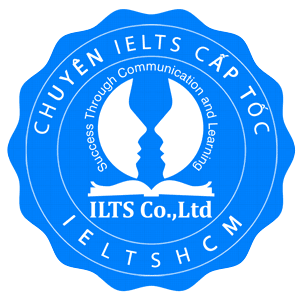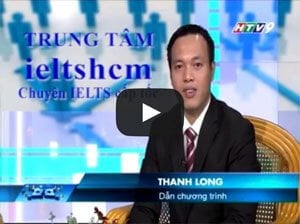Bài mẫu Speaking IELTS chủ đề Giáo dục và Học tập – IELTS Speaking sample on Education
Bài mẫu Speaking IELTS chủ đề Giáo dục và Học tập – IELTS Speaking sample on Education
Bài mẫu Speaking IELTS chủ đề Giáo dục và Học tập – IELTS Speaking test sample: Education Topic part 1 part 2 part 3 – Education & Study: Sample Answers and Topic Vocabulary for IELTS Speaking Exam. Topic education vocabulary for IELTS speaking exam.

IELTS Speaking on education and study sample 1:
Đề thi và bài mẫu IELTS Speaking Education & Study part 1:
Question: What is your highest level of education?
Answer: My highest level of education is a Master’s degree in International Studies.
Question: Why did you choose to study International Studies?
Answer: I chose to study International Studies because I have a strong interest in global affairs and the interconnectedness of societies and cultures. I felt that pursuing a Master’s degree in this field would provide me with a comprehensive understanding of the complex issues facing our world today.
Question: What was the most challenging aspect of your studies?
Answer: The most challenging aspect of my studies was the sheer volume of reading and research required. Given the interdisciplinary nature of the field, I needed to stay up-to-date with developments in a range of subjects, including political science, economics, and history. This required a significant investment of time and effort, but I believe that it was worth it to gain a deeper understanding of the issues at hand.
Đề thi và bài mẫu IELTS Speaking Education & Study part 2:
Question: Describe a study technique that you find effective.
Answer: One study technique that I find effective is active recall. This involves attempting to recall information from memory, rather than simply re-reading it. For example, I might write a summary of a chapter from a textbook, or quiz myself on key concepts. This technique helps me to solidify my understanding of the material and retain it for longer.
Đề thi và bài mẫu IELTS Speaking Education & Study part 3:
Question: What do you think are the biggest challenges facing students today?
Answer: I believe that one of the biggest challenges facing students today is the pace of technological change. With new tools and technologies emerging at a rapid rate, it can be difficult for students to keep up and effectively integrate them into their studies. Additionally, there is also a growing expectation for students to be well-rounded and have a diverse range of skills, which can be challenging to achieve.
Question: How can students overcome these challenges?
Answer: To overcome these challenges, students need to be proactive and proactive in developing their skills and knowledge. This might involve seeking out professional development opportunities, building a strong network of mentors and peers, and staying up-to-date with the latest trends and technologies. Additionally, students need to be proactive in their studies and seek out opportunities to apply what they have learned in real-world settings.
Question: Do you think that the traditional approach to education is still effective today?
Answer: I believe that the traditional approach to education has its limitations, especially in the rapidly changing world we live in today. While it is important to have a strong foundation in core subjects and theories, students also need to be equipped with practical skills and experience that will enable them to succeed in the real world. As such, I believe that a more holistic and experiential approach to education, one that combines theoretical and practical learning, is more effective and relevant for today’s students.
MỘT SỐ TỪ VỰNG CHỦ ĐỀ EDUCATION TRONG SPEAKING PART 1
IELTS Speaking on education and study sample 2:
Đề thi và bài mẫu IELTS Speaking Education & Study part 1:
Question: What is your educational background?
Answer: I hold a Master’s degree in Education with a specialization in Curriculum and Instruction. During my studies, I gained a comprehensive understanding of the theories and practices of education, as well as hands-on experience in designing and delivering effective educational programs.
Question: What motivated you to pursue a career in education?
Answer: I have always been driven by a strong commitment to lifelong learning and a desire to make a positive impact in the lives of others. I believe that education is a transformative force that can empower individuals to achieve their full potential and make meaningful contributions to society. This motivated me to pursue a career in education and to strive towards improving the quality of education for all learners.
Question: Do you think technology has had a positive or negative impact on education?
Answer: The role of technology in education is a topic of much debate, with valid arguments on both sides. On the one hand, technology has revolutionized the way we access information and resources, enabling students to learn at their own pace and facilitating collaboration and communication. On the other hand, there is a growing concern that technology may lead to a decline in critical thinking skills and a decrease in face-to-face interaction.
Đề thi và bài mẫu IELTS Speaking Education & Study part 2:
Question: Describe an dedicated teachers you have had.
Answer: I have had the privilege of learning from many talented and dedicated teachers throughout my academic career. However, one teacher who stands out in my memory is my college mathematics instructor. She was an expert in her field, and she challenged us to think critically and creatively about complex mathematical concepts. Her enthusiasm for the subject matter was contagious, and she encouraged us to explore our own interests and passions within the field. She was truly an effective teacher who inspired me to pursue further studies in mathematics.
Đề thi và bài mẫu IELTS Speaking Education & Study part 3:
Question: What are the challenges facing education today?
Answer: The challenges facing education today are numerous and multifaceted. Some of the key challenges include declining funding for education, the achievement gap between different socio-economic groups, and the integration of technology into the classroom. There are also concerns about the standardization of education, the need for more creativity and innovation in teaching methods, and the pressure to prepare students for a rapidly changing job market.
Question: What do you think should be done to improve education?
Answer: Improving education requires a concerted effort from a wide range of stakeholders, including educators, policy makers, and society as a whole. In my view, investing in teacher training and development, promoting a culture of continuous learning and improvement, and providing students with hands-on and experiential learning opportunities are critical steps towards enhancing the quality of education. Additionally, it is essential to embrace innovative and creative teaching methods, as well as to ensure that education is accessible and inclusive for all learners.
Question: How do you think education will change in the future?
Answer: The future of education is likely to be shaped by advances in technology, changing societal and economic conditions, and ongoing efforts to improve the quality of education. I envision that technology will continue to play a significant role in the classroom, enabling students to access a wealth of resources and facilitating collaboration and communication. There may also be a shift towards personalized and flexible learning approaches, as well as an increased emphasis on experiential and project-based learning.
Từ vựng học thuật chủ đề giáo dục và học tập | Từ vựng học thuật chủ đề Education and Study
- Educational background : Nền tảng giao dục
- Career in education : Sự nghiệp giáo dục
- Technology impact on education : Tác động của công nghệ đến giáo dục
- Effective teacher : giáo viên hiệu quả
- Challenges facing education : Những thách thức đối với giáo dục
- Improving education : Cải thiện giáo dục
- Future of education : Tương lai của giáo dục
- Passion for teaching/subject matter : Đam mê giảng dạy/môn học
- Pedagogy : sư phạm
- Language acquisition : tiếp thu ngôn ngữ
- Curriculum development : phát triển chương trình giảng dạy
- Personal and societal development : Phát triển cá nhân và xã hội
- Critical thinking skills : Kỹ năng tư duy phản biện
- Face-to-face interaction : Tương tác trực tiếp
- Dynamic learning environment : Môi trường học tập năng động
- Active participation : tham gia tích cực
- Complex concepts : Khái niệm phức tạp
- Declining funding : Giảm tài trợ
- Achievement gap : Khoảng cách thành tích
- Integration of technology : Tích hợp công nghệ
- Standardization of education : Chuẩn hóa giáo dục
- Creativity and innovation in teaching : Sáng tạo và đổi mới trong giảng dạy
- Collaborative effort : nỗ lực hợp tác
- Teacher training and development : Đào tạo và phát triển giáo viên
- Culture of continuous learning : Văn hóa học hỏi không ngừng
- Hands-on and experiential learning : Thực hành và học tập kinh nghiệm
- Advances in technology : Những tiến bộ trong công nghệ
- Changing societal and economic conditions : Thay đổi điều kiện xã hội và kinh tế
- Personalized and flexible learning : Học tập cá nhân hóa và linh hoạt
- Project-based learning : Học tập dựa trên dự án
- Pedagogy : sư phạm
- Language acquisition : tiếp thu ngôn ngữ
- Curriculum development : phát triển chương trình giảng dạy
- Personal and societal development : Phát triển cá nhân và xã hội
- Complex and multifaceted issue : Vấn đề phức tạp và nhiều mặt
- Reliance on technology : Phụ thuộc vào công nghệ
- Decreased critical thinking skills : Suy giảm kỹ năng tư duy phản biện
- Dynamic and engaging learning environment : Môi trường học tập năng động và hấp dẫn
- Passion for the subject matter : Đam mê môn học
- Complex concepts : Khái niệm phức tạp
- Major challenges : Thách thức lớn
- Declining funding : Giảm tài trợ
- Achievement gap : Khoảng cách thành tích
- Socio-economic groups : nhóm kinh tế xã hội
- Integration of technology : Tích hợp công nghệ
- Standardization of education : Chuẩn hóa giáo dục
- Creativity and innovation : Sáng tạo và cải tiến
- Teacher training and development : Đào tạo và phát triển giáo viên
- Continuous learning : học liên tục
- Personalized and flexible learning approaches : Phương pháp học tập được cá nhân hóa và linh hoạt
- Experiential and project-based learning : Học tập dựa trên kinh nghiệm và dự án
Học IELTS nên học với giáo viên Việt Nam hay giáo viên nước ngoài
Bài mẫu Speaking IELTS chủ đề Giáo Dục và Học tập – IELTS Speaking test sample: Education Topic part 1 part 2 part 3 – Education & Study: Sample Answers and Topic Vocabulary for IELTS Speaking Exam.



